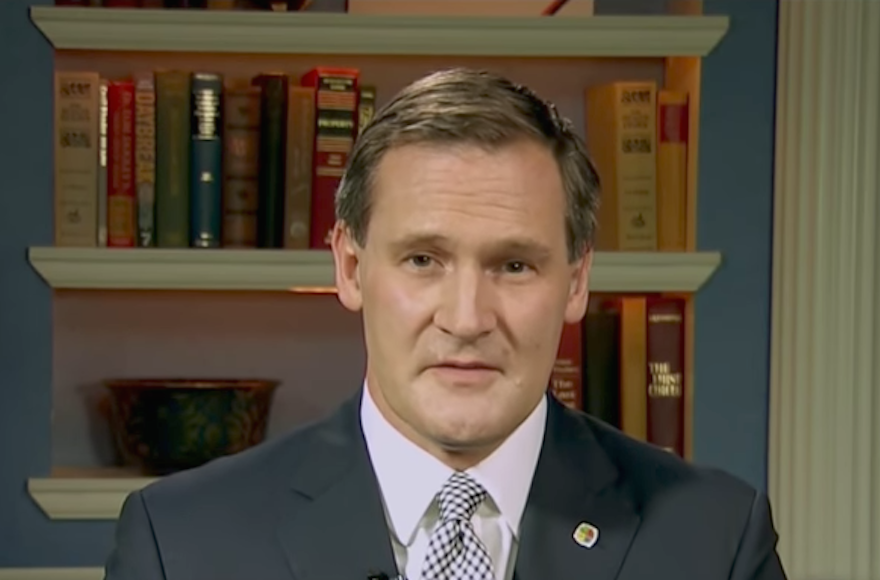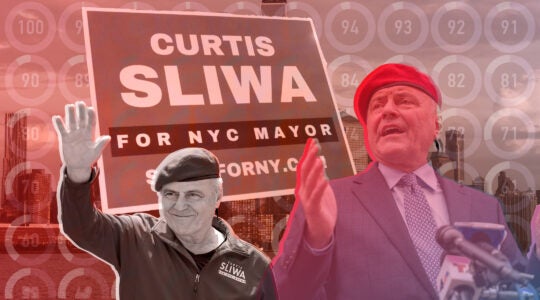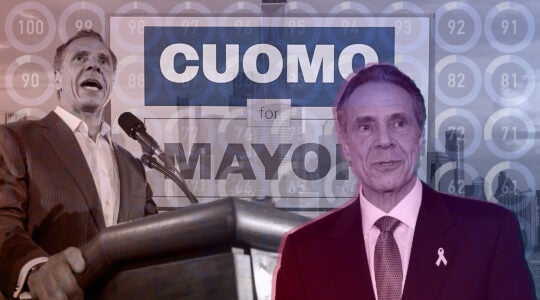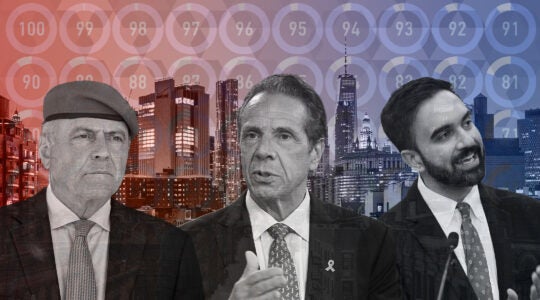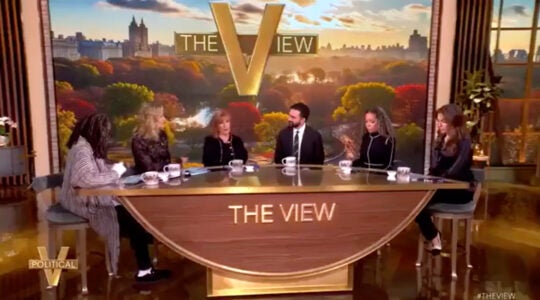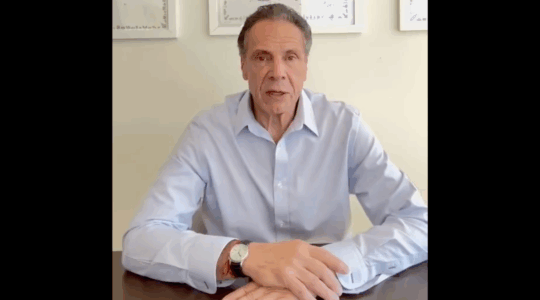CHARLOTTESVILLE, Va. (JTA) — Michael Signer, the Jewish mayor of Charlottesville, has one thing in common with the white supremacists who descended on his southern Virginia city over the weekend: He also opposed the removal of a statue of Confederate Gen. Robert E. Lee.
Of course, Signer’s reasons for preserving the statue would have appalled the supremacists: He agreed with local African-American activists who had argued that preserving the statue was a means of teaching Virginians about the horrors of a “dishonorable” cause, the Confederacy.
Signer was on the losing side of a 3-2 City Council decision, and the statue is now slated for removal. But his thoughtful approach, more typical of an academic than a politician, has also been evident in his counsel during the rash of protests that have plagued this city: “Don’t take the bait,” he has said.
In giving that advice, Signer has noted that for the first time in his life, he has been the target of intense baiting as a Jew.
“I can’t see the world through a black person’s eyes,” he said at a June 13 address at an African-American church, where he urged constituents not to give in to the impulse to counter hatred with hatred.
“I can see it through a Jewish person’s eyes; the KKK hates Jews just as much as they hate black people. The stuff with this group online about Jews is unbelievable, bloodcurdling. The stuff I’ve gotten on my phone at my house, you’d think it was done a hundred years ago.”
Signer, 44, a practicing lawyer in Charlottesville, also lectures on politics and leadership at the University of Virginia, his law school alma mater. His wife, Emily Blout, is an Iran scholar at the same university, which is located here.
An Arlington native, Signer is the child of journalists, but in his author’s autobiography sounds like many other younger liberal Jews who note with pride their grandparents’ working class and intellectual roots:
“My grandfather was a Jeep mechanic for the Army on the European front in World War II and lifetime member of the proofreaders’ union at the New York Times; he lost part of a finger in an industrial accident as a young man,” he wrote. “My grandmother organized seamstresses on her factory floor in New York City and later worked as a secretary to Hannah Arendt at the New School.”
In a January speech declaring Charlottesville “a capital of the resistance,” Signer described his grandfather as a “Jewish kid raised in the Bronx” who was “part of the forces that liberated the world from Nazism and fascism, that laid the groundwork for NATO and the Marshall Plan, and for a country that lived up to the promises of the Statue of Liberty. …
“If he were alive right now, I don’t think I could look him in the face and say Grandpa, I didn’t fight for the values you fought for.”
Before becoming mayor, Signer was known both for his activism in the senior reaches of the Democratic Party — he was national security adviser for John Edwards’ 2008 primary campaign — as well as his expertise on a subject that has received much attention recently, demagoguery. His 2009 book, “Demagogue: The Fight to Save Democracy from its Worst Enemies,” was well received.
The book examines successful demagogues left and right: Sen. Joe McCarthy, the 1950s anti-communist firebrand who plagued the American discourse, and Hugo Chavez, the late Venezuelan strongman and leftist, both come under scrutiny. In December 2015, before the presidential primaries, Signer predicted that Donald Trump could become a “singular menace to our Republic.”
Paraphrasing James Fenimore Cooper, Signer wrote then that Trump met all four criteria of an American demagogue: “they posture as men of the common people; they trigger waves of powerful emotion; they manipulate this emotion for political benefit; and they threaten or break established principles of governance.”
Without saying “I told you so” outright, Signer this weekend squarely blamed Trump for stoking the populist white nationalist fervor that culminated in the violence that took the life of one counterprotester, injured dozens of others and led to the death of two state troopers in a helicopter crash. The rally included Nazi flags, chants of “Jews will not replace us,” and shouts of “Jew” every time a speaker mentioned Signer’s name.
“Look at the campaign he ran,” the mayor said on CNN.
Signer elaborated on NBC’s “Meet the Press,” saying of Trump, “I think they made a choice in that campaign, a very regrettable one, to really go to people’s prejudices, to go to the gutter.”
Signer’s tactic has been to organize countering events that celebrate Charlottesville’s diversity, prompting Mark Pitcavage, the senior research fellow at the Anti-Defamation League’s Center on Extremism, to say on Twitter that Signer “gets it.”
Speaking in May on “State of Belief,” a radio show produced by the Interfaith Alliance, Signer said it was more productive to focus on the victim than the perpetrator.
“You’re trying to ease the pain of someone who’s been afflicted rather than focus on the harasser,” he said.
He also described the unfamiliar sensation of being in the position of the afflicted, barraged as he was with online assaults from anti-Semites as the Lee statue issue was put before the council. One tweet, from the account of someone calling themselves Great Patriot Trump, read “I smell Jew. If so, you are going back to Israel. But you will not stay in power here. Not for long.”
“The wave of anti-Semitic attacks I’ve seen in the last week, it’s been a new experience for me, I’ve never seen that before,” Signer said. “Some of the nightmare historical tropes I thought had been retired after World War II” had returned as “more disturbing mashups of politics today and anti-Semitism.”
JTA has documented Jewish history in real-time for over a century. Keep our journalism strong by joining us in supporting independent, award-winning reporting.
